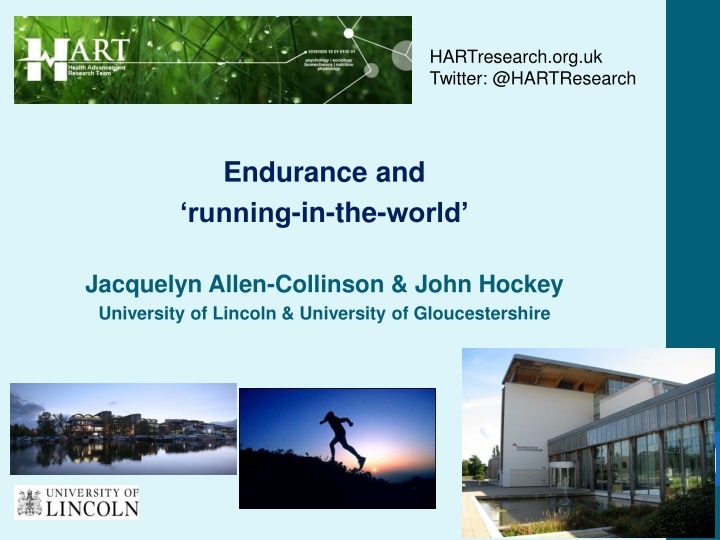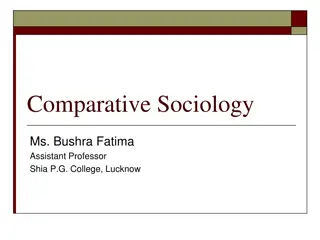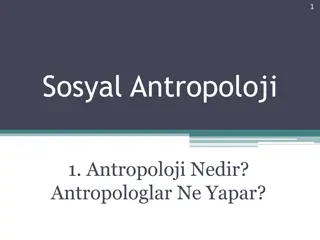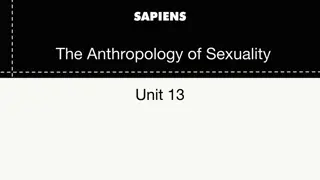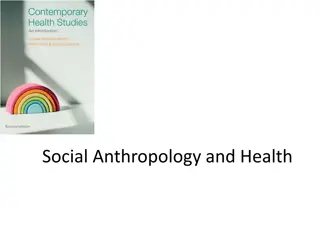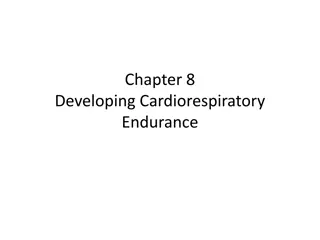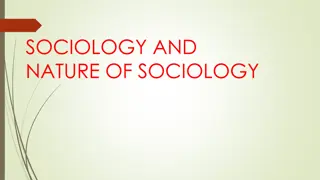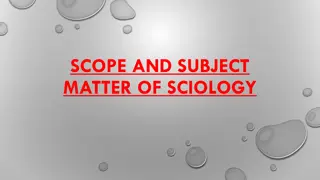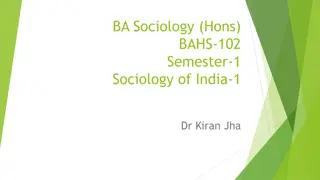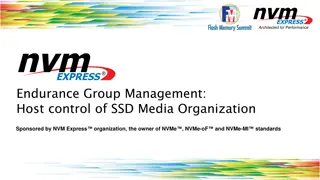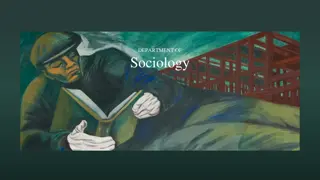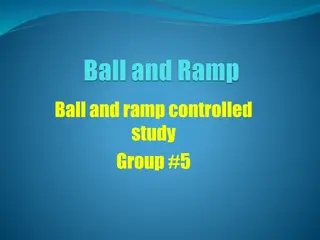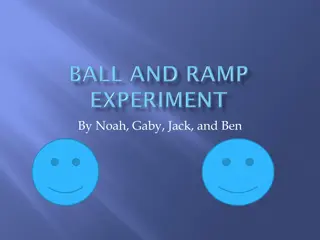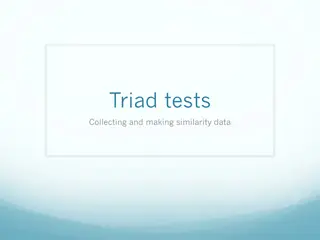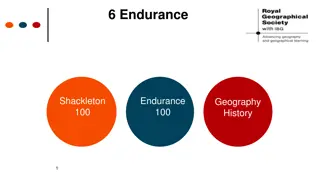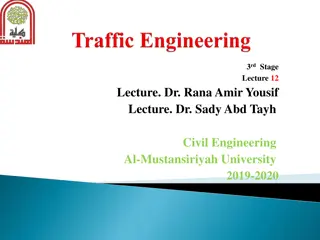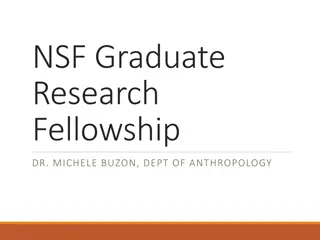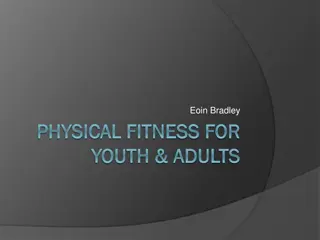Endurance in Distance Running: Sociology & Anthropology Perspectives
Endurance in distance running is explored from sociological and anthropological perspectives, delving into the ability to withstand hardships, perseverance, and the valorization of enduring in the running community. The ongoing assessment of fitness levels, embodied mind capacity, and the development of physical endurance are central to the discussion. Sociologists argue that endurance is a learned practice essential for racing and training over distances, emphasizing the balance between confidence, vulnerability, and the desire to keep running despite pain and discomfort.
Download Presentation

Please find below an Image/Link to download the presentation.
The content on the website is provided AS IS for your information and personal use only. It may not be sold, licensed, or shared on other websites without obtaining consent from the author.If you encounter any issues during the download, it is possible that the publisher has removed the file from their server.
You are allowed to download the files provided on this website for personal or commercial use, subject to the condition that they are used lawfully. All files are the property of their respective owners.
The content on the website is provided AS IS for your information and personal use only. It may not be sold, licensed, or shared on other websites without obtaining consent from the author.
E N D
Presentation Transcript
HARTresearch.org.uk Twitter: @HARTResearch Endurance and running-in-the-world Jacquelyn Allen-Collinson & John Hockey University of Lincoln & University of Gloucestershire 1
Today Doing endurance in distance running Autoethnography project Endurance as mode of being-in-the-world: Fatigue Pain & Dys-ease JAC 2
Endurance sociology/anthropology of Endurance in general terms = ability to withstand hardship, difficulties, stress; the state or act of persevering despite difficulties In sport science & physiology relates to training of the aerobic system for cardiovascular and muscular endurance the ability to keep running, for example, over a distance of 800m or greater Endurance comprises: general endurance and specific endurance, as endurance in sport also links with skill and technique in a particular sport or sporting role From sociological perspective: in distance running subculture, endurance involves the desire and ability to endure, keep running in the face of fatigue and pain Doing endurance is thus highly valorised by distance- running community. JAC 3
Running & endurance Racing/training over distances seriously(not for fun !) to completion demands huge volumes of training at a certain intensity of pace Results in physiological changes - develop physical endurance Importantly, also develops a certain kind of embodied mind capacity to endure becomes a central feature in athletic/ sporting identity Encapsulated in subcultural argot of digging in (military origin?) digging in = kind of enduring consciousness to defend the runner from her/his own frailties in the face of fatigue, discomfort, pain, etc Sociologists argue that this kind of endurance is learnt via practice JAC 4
Running & endurance Never achieved completely, once-&-for-all however - vulnerability always liable to emerge inevitable bad days in both training/racing More a provisional, contingent confidence, based on: an ongoing assessment of our fitness levels prior experience of what has been endured before Confidence is also relative to the specific context, including terrain & conditions E.g. We are both experienced cross country & road runners, but: first time John undertook a 18-mile group training run over the fells of north-west England on a winter morning, question was: can I finish this session with this bunch of fell rats?! Jaqui has problems with running in heat and high humidity JAC 5
The Running Research Project Collaborative autoethnography J & J as veteran runners Previously running 6-7 days a week, at times twice daily Firmly non- lite category - But highly committed, serious runners , involved in: 1) welfare running, pursued for health and fitness aims; 2) performance running, pursued in order to improve and sustain performance (although not at level once was!) Data collection over 2 years during knee injury & rehab process Kept research logs: Log 1 JH; Log 2 JA-C; Log 3 Running taskscape entails disciplined and routinised activity, often experienced in somewhat functional manner - means of producing a running body Salient findings: fatigue / pain
1) Fatigue Well-known to distance runners esp. if run is post- working day: JAC Totally duff 8-mile session today. Right from the start the quads like iron bars, dead weight, no push at all in them. Heavy, torpid, rigid. By the third mile I just knew it was not going to get any better, the quads weren t easing at all. On the hills, hip flexors achy too. Everything heavy and no oomph , just dragged all of myself around the route. No power in the legs whatsoever. Just hope tomorrow a bit of the spring returns. (Log 2) 7
Head down We have given the concept of head down, keep going when running quite a lot of attention in our individual logs. What we have both agreed on is that it is a process of adjusting to the feeling of fatigue. In a way it is about staying with the feeling of being weighed down by the body and working with the little one has got in the moment. So we work with that sub-optimal source of energy and thus keep going. You learn that you can do that, however much of a struggle it feels in the moment, and that creates confidence and then in the next bad run or race that helps sustain the momentum. You learn you ll get through it, however unlikely it at first seems. (Log 3) JAC 8
Muscle memories Where I run down to the bottom of the route there s a path - flat for a while, through some trees, then a little slope - but it s sharp, very steep for a short distance, before it flattens out at the top. To get to the top I have to drive suddenly with the quads, arms pumping, and lean into it, so as to generate a surge of momentum. I know just what the effort will feel like even before I get there. I mentally prepare just a few seconds before, drawing on some kind of muscle memory already there. Just now and again, my mind wanders elsewhere and that sharp little slope takes me and the muscle memory by surprise. (Log 2) JAC 9
2) Pain & dys-ease Leder (1990): in normal , healthy state, mundane, taken-for-granted experience of the body marked by ease - lack of self-reflection & self-awareness, body as backgrounded , absent ; not focus of intentionality When everyday bodily routines interrupted - e.g. pain, fatigue - body breaks into consciousness; dys-appears - may be experienced as away, apart, from the I (Leder, 1990: 90) Reification of body or body part; becomes an it JAC 10
Watching it Today I ran from my campus office. Half way around the route I started to feel the bulk of my right calf tightening. So immediately I am giving it lots of focus. Am I going to get around the route with this? Can I afford to still run with it? At the back of my mind was a big left calf pull I had years ago running up through Galgate village, which stopped me dead for about a month. That came on insidiously gradually spreading its evil tentacles, it even reached my soleus, until it was one big hard ball and then bang! So today I ran watching it, watching and running cautiously. It did not start to spread until I reached the converted pub, where I stopped immediately. Stretch it out gently against the wall, repeat three times and luckily it did not jam back up on me and I ran the remaining one hundred yards safely. (Log 1) JAC 11
Injury ghosts I have a developed sensibility or perhaps it is a sensitivity to my running body. Over the years via lots of injuries I now have ghosts. So one of these are my peroneals (tendons in the lower leg), which are OKish most of the time, but then they will emerge again. I know exactly what they are like in my head, it s a different kind of pain from say Achilles pain, kind of a longer pulling, grumbling away at me all of a sudden. It s like ah you swine, you are back in all your perfidy, I know how to sort you out! (Log 1) JAC 12
Contact details: HARTResearch.org.uk Twitter: @HARTResearch Dr Jacquelyn Allen-Collinson, Director, Health Advancement Research Team (HART), University of Lincoln E: jallencollinson@lincoln.ac.uk Dr John Hockey, Senior Academic & Research Fellow, University of Gloucestershire E: jhockey@glos.ac.uk Pre-print publications of our publications available FREE via ResearchGate: https://www.researchgate.net/profile/Jacquelyn_Allen- Collinson https://www.researchgate.net/profile/John_Hockey/info 13
